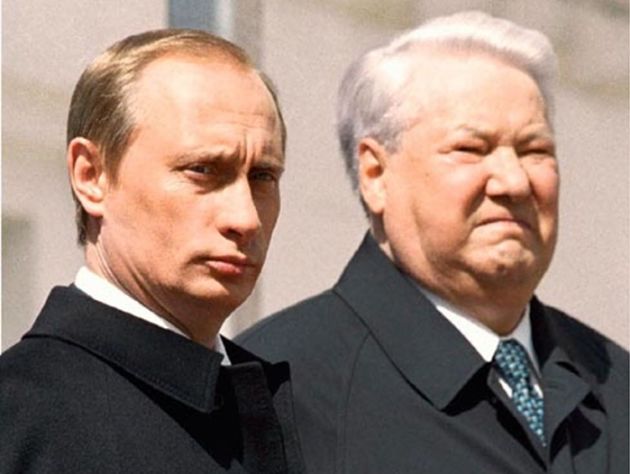Today, not only in Russia, but all over the world, many people are remembering and discussing a significant event. Exactly 20 years ago, on August 9, 1999, the Director of the FSB and Secretary of the Security Council of the Russian Federation, Vladimir Putin, was appointed Prime Minister of Russia, which marked his real rise to power within the framework of the so-called “Successor” operation.
Recently, an interview with Ramzan Kadyrov, dedicated to the 20th anniversary of these events, was published in Botlikh. Due to the sensitivity of this issue, almost all attention was focused on the assessment of the actions of Imam Shamil, may Allah be merciful to him and accept his jihad.
However, the events that marked the beginning of the Second Chechen War are directly related to today’s anniversary, namely Putin’s rise to power. After all, the popularity of Boris Yeltsin, who appointed him prime minister, was close to zero at that time, and the unknown and inconspicuous Putin had no chance of winning the early presidential elections if events had unfolded normally after his boss’ resignation. After all, the development of the country’s economy and the improvement of people’s lives were never his strong points, nor are they now. This was the responsibility of the previous Primakov-Maslyukov government, but precisely because of its growing popularity it was decided to dismiss it and appoint someone who had only one chance to become its successor – through war. The Botlikh campaign, accompanied by provocations of the special services, and the bombing of buildings in Moscow, for which no one took responsibility… As a result, with the help of propaganda, an inconspicuous KGB officer who used to carry suitcases for Anatoly Sobchak became a “national leader”, a “savior of Russia”, a “firm hand”, a winner in a “small victorious war”.
Not only did the majority of Russians give Putin a free hand in the wave of patriotic euphoria, but the world also supported his war against “international terrorism,” which conveniently coincided with the September 11 attacks and made Putin’s Russia the front line of the common front. Since then, however, attitudes toward him have changed significantly. In the world, from perceiving him as a hopeful leader to seeing him as one of the main global problems. And among Russians themselves, who have already lived through the early years of Putin’s relative prosperity thanks to high oil prices and the West’s favorable attitude, all that remains is a deteriorating economic situation, the permissiveness of the elite and the omnipotence of the security forces, increasing repression, the deterioration of “ties,” and the prospect of deterioration in all of these areas.
So what has Putin’s 20-year rule brought to Muslims in Russia and the world? As mentioned above, Putin came to power through the massacre in Chechnya under the banner of fighting “Islamic terrorism” and consolidated his power through it. Thus, a taboo on “Islamism” was created in the country, with the banning of Islamic organizations that still operate freely in most Western countries. A paranoid witch-hunt against Saudis, Qataris, Turks began, resulting in the closure of funds, educational institutions and publishing houses with international connections. As a result, all of this turned into an unofficial war against the Islamic sector of civil society, which, however, did not last long itself and became a victim of “tightening the screws” and a transition from hard authoritarianism to soft totalitarianism.
Can Muslims in Russia compare Putin’s 20 years of rule with anything else? Yes, at least with the decade that preceded it. When Islamic organizations, publishers, and funds flourished in the country, Muslims traveled freely abroad to study, and their co-religionists came to Russia, creating new religious administrations and even Islamic parties that sent deputies to the State Duma. When the republics had significant powers, elected their own presidents, and had a vibrant public, national, and religious life, with their representatives defending their interests in Russian politics, such as Aushev, Shaimiev, and others. Muslims in Russia lost all this under Putin, just as Russians as a whole lost many of the freedoms that emerged after the fall of the totalitarian regime.
Putin’s Russia brought to the global Muslim Ummah a war to preserve the Assad regime in Syria, the annexation of Crimea, making its indigenous Muslim population outcasts in their own land, support for anti-Islamic forces and sentiments in many countries where Muslim minorities reside. It is said that history does not know the subjunctive, and as Muslims we believe that everything is predetermined by Allah. However, to say that there was no alternative to Putin’s course would be either a mistake or a deliberate deception. Such an alternative did exist – the evolutionary development of the economy and society, which took place before Putin came to power, the consolidation of the peace treaty concluded in 1996 with Chechnya, whose leadership (initially!) was ready for the closest alliance with Russia. But all this was possible only if the leaders of Russia were guided by the interests of its citizens and peoples.
However, they wanted to stay in power at all costs and chose another way – war and terror. So, in essence, the question remains the same today, because they do not intend to give up power. The only difference is that Yeltsin was forced to hand it over to his successor because of his health, while the relatively young and healthy Putin clearly intends to rule despite everything. And he has a chance to stay in power until the end of his days, like Ceausescu or Gaddafi.

